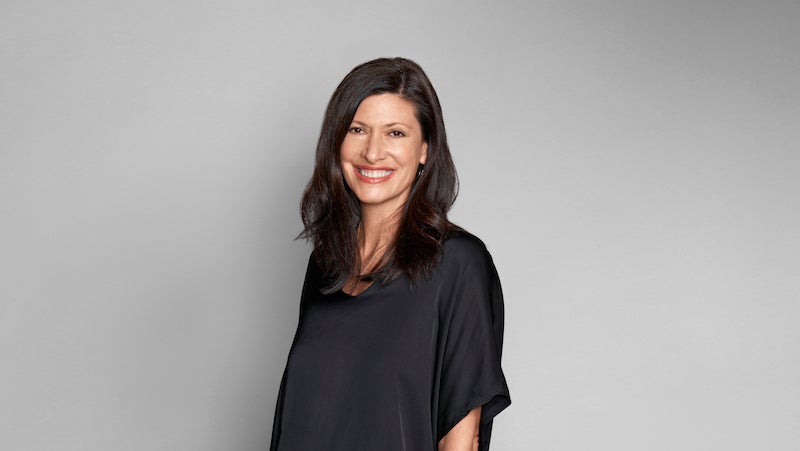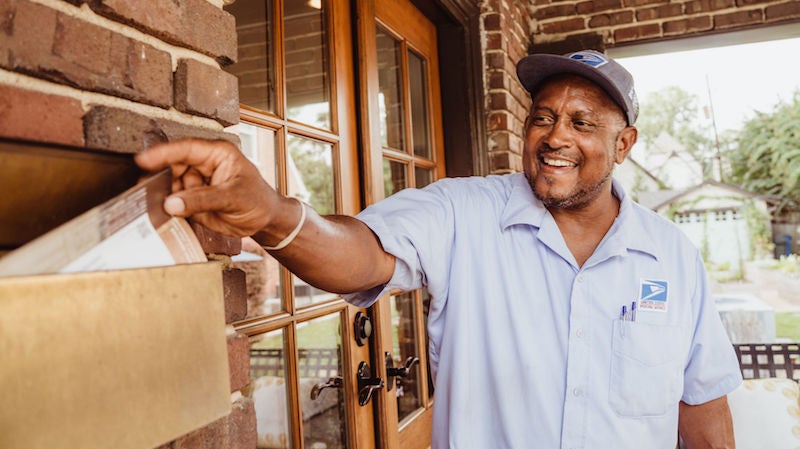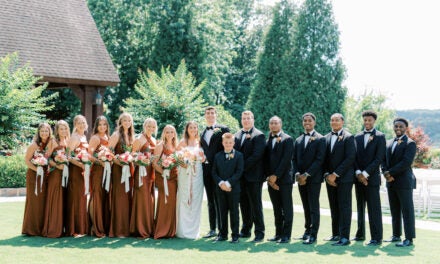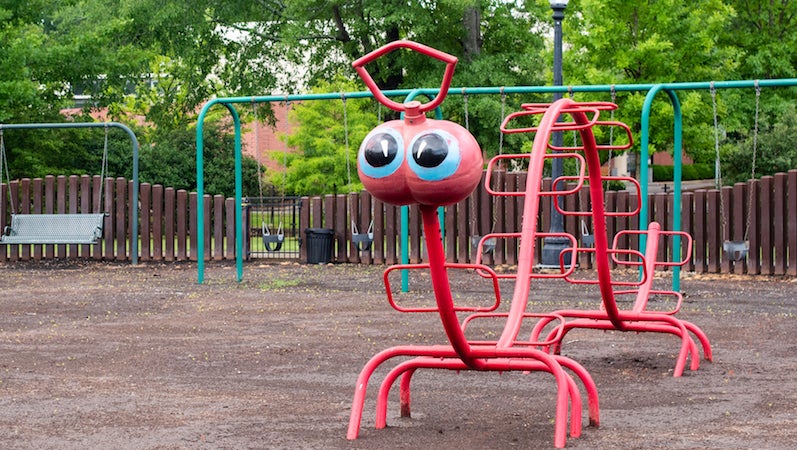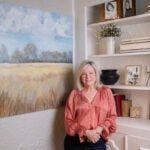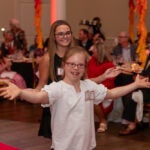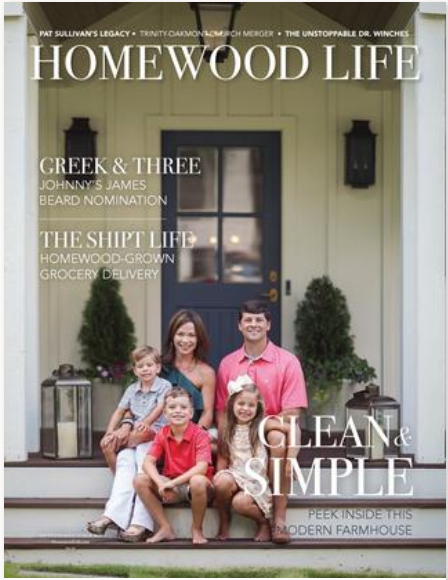By Madoline Markham
Photos Contributed
The high school seniors Julie Gentry mentors through the College Choice Foundation have no idea she was on a reality show, much less the very first reality show. Likely, they’ve never heard of The Real World or “Julie from Alabama.”
But when Julie looks at these seniors and talks with them about their hopes and dreams for college, she sees herself at 19. “I remember being that age and really wanting to experience more, and wondering how that was going to happen,” Julie says. “These kids want a big experience and to learn more about the world and meet people. I totally understand where those kids are coming from. I remember having ants in my pants wanting to get out of town.”
And that’s just what the team creating the show saw in Julie back in 1992 when they cast her for the very first season of MTV’s The Real World, throwing her and six roommates into an apartment in Manhattan and following them around with cameras. “I think they thought I was a good fish out of water because I was yearning for a lot of these experiences and how to access a bigger world,” Julie told us as we talked with her over the Zoom in March.
For Julie the conversations she had on The Real World as cast members’ varying backgrounds and views collided—both back in 1992 and in 2021 for a new Homecoming series of the show that is now streaming—are poignant and opened her world to a much larger one. “We can get stuck in an echo chamber here in our little bubble, and it was a great opportunity for me to be in a situation to experience things with people with a different point of view,” she says of the 1992 season. “It’s not like it was all super fun, but it was important and helped me get more perspective that I would have had a harder time finding.”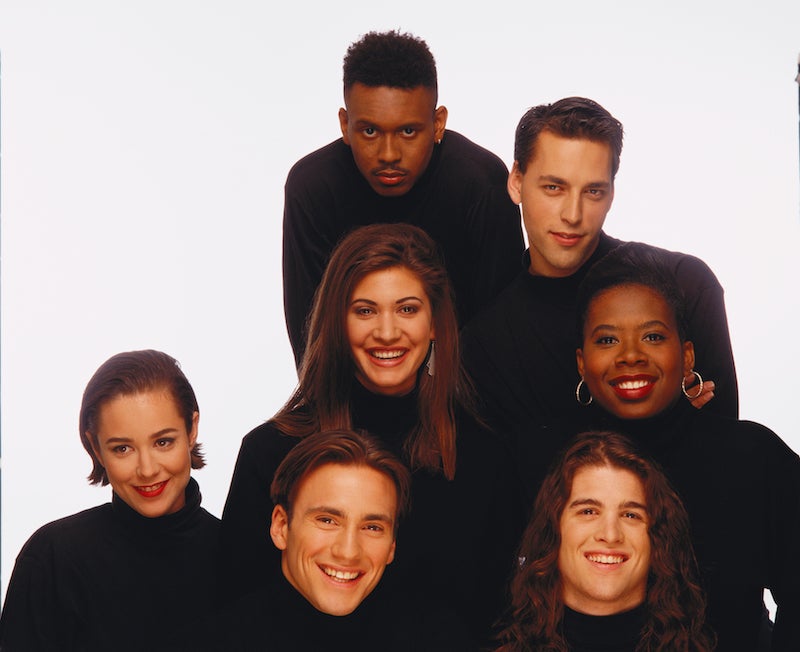
Even with the new show streaming, though, it’s the College Choice Foundation that is a bigger part of her everyday real world as she works toward its mission to “help academically talented, motivated students with limited resources and opportunities find their best and most affordable college fit and ensure they have the resources to successfully navigate college and graduate in four years,” according to the Homewood-based nonprofit’s website.
Through it Julie wrestles with uncomfortable conversations and how students are not on an even playing field heading into college. “You see (these students) were never put in a position where they could succeed,” Julie says. “I’m thinking of one student. Her mom died in childbirth, she doesn’t know her father, she lives with her grandparents. And now their taxes are going to determine whether she can go to college or not. How is that right?”
While we are on the subject of Homewood ties, we should note that Julie’s parents grew up in Edgewood and met at All Saints Episcopal Church, where Julie too would meet her husband, Joshua, in youth group. “I make the joke with my kids that you have to so careful who you go to church with because you could end up stuck with them,” Julie quips.
Both Julie and Joshua moved away after high school, but they came back to Birmingham after marrying and back to Homewood in 1999 when they bought their first house on Irving Road—right near the former Homewood Middle School property that Julie’s parents had referred to as Kite Hill where they’d played as kids.
Not too long after the new Homewood Middle School was built, Joshua was working for Jim ‘N Nick’s and both of them were involved with community gardens locally, so Julie decided to call up then-Homewood City Schools Superintendent Bill Cleveland and propose a community garden. She didn’t expect him to say yes. But “He said you should do it,” Julie recalls. “He said that it won’t be that easy, but I think you can figure it out.” And figure it out she did, from writing grants to finding water sources to advocating for it at city council meetings. Today she works with students of all ages at the garden next to the Board of Education building.
For the last 22 years that’s the life Julie has lived, running a community garden and raising her two kids, now 19 and 17, in home sweet Homewood. Sure, some people remember her from TV back in 1992, but she says her friends have always been protective of her in that regard.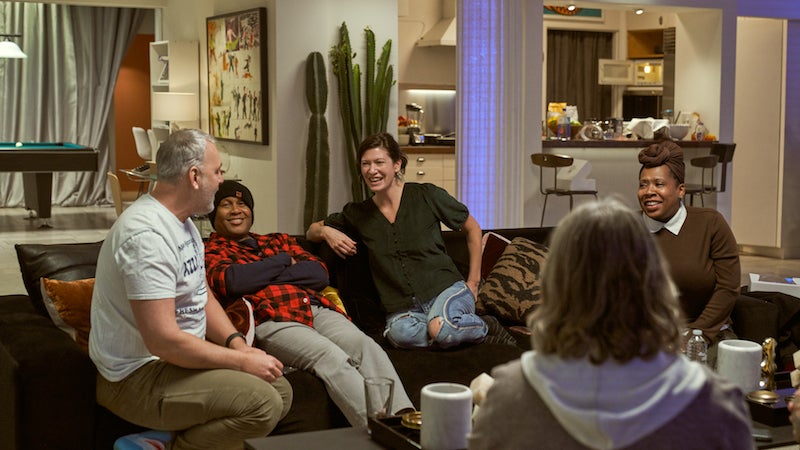
And then last December, as COVID-19 cases were spiking nine months into the pandemic, she got a text. Would she want shoot a homecoming of The Real World? At first Julie says she and the other 1992 cast members—who keep up on a text chain—were skeptical. How could they pull that off during the pandemic, in New York City no less? But by January they’d all arrived at separate hotels to quarantine for a week with a constant bombardment of COVID tests before all seven of them reunited for the first time since 1992, back on camera for a week 29 years later in the very same apartment. And by March 4 The Real World Homecoming was streaming on Paramount+. “It’s all been like a speeding bullet train,” Julie says of how fast it all happened.
And since March 4, the Gentry family has started their Thursdays like usual with breakfast and coffee with their daughter, Phoebe. But right when her car pulls out of the driveway to go to school, Julie and Joshua start streaming the new The Real World Homecoming episode that comes out that day. “I am sure I drive (Joshua) crazy because I tell him to pause it and explain what was really going on,” she says. “He is very patient to get through all of that with me. Then my son (who is in college) starts blowing my phone up and calls to rehash it. Then my daughter comes back and weighs in.”
Like the students Julie mentors through College Choice Foundation, her own kids didn’t fully grasp the significance of the show their mom was on before this year. “They had no reason to think it was as big of a deal as it was,” she says. “But this has driven home that what I did in 1992 a lot of people really cared about. They have laughed about it and get nervous about what I am going to say.”
“Why do it?” we asked Julie about the 2021 homecoming show. “We wanted to show that our friendship had not ended in 1992,” she tells us. “(The last episode) shows us all walking out the door, and yes, we all did go our separate ways. But when you have that experience with other people you have a bond. We have a connection from having to trust each other to get through that 1992 season.”
What the show didn’t plan was what would happen that week the castmates were all alone in hotel rooms when the Jan. 6 attack on the U.S. Capitol building began. “Being in New York with intense COVID restrictions in place and seeing all that unfold at the Capitol, all texting each other getting ready to go back to living together—it felt like the Twilight Zone,” Julie says.
The new show flashes back and forth between 2021 and 1992 filmings—back when the show was the first of its era, when there were no cell phones or social media. In fact, for context, 1992 was the first year dial-up internet was offered commercially in the U.S. And there’s a reason the show is so memorable for those who are around Julie’s age. “It was the first time people saw people similar to themselves having these experiences,” Julie notes. “Now reality television is everywhere, but I keep hearing from different people that it meant so much to them because they felt isolated and the show gave them some hope that there are people out there like me and there is a bigger world out there.”
Even media attention this time has been very different as write-ups on Julie and the cast have appeared in the New York Times, Los Angeles Times, People magazine and other publications since the show was announced. “The first go around my mom might call and say, ‘Julie, you are in TV Guide!’” (May we recommend that any readers who don’t know what TV Guide is ask their parents.) “She would read it to me, and then I might find a TV Guide in the grocery store. It was a slow access to it. You had more time to wrap your head around it. Now, Joshua has his phone set on Google alerts, so in the morning he’ll be like, ‘This is you!’ It comes at you like a fire hose.”
Julie also likes to note how small of a chapter of her life The Real World really was. “I’ve had two kids since then. My husband has opened three restaurants since then. My parents have died. So much life has happened to me and the other cast members,” she says from the other side of our Zoom call, where she is wearing a grey T-shirt and Little Donkey ball cap (her husband, Joshua, serves as the restaurant’s operating partner). “(My fellow cast member) Andre says that basically what happened to us is someone filmed us for 13 weeks right when we turned 19, and then those 13 weeks got edited down to about four and a half hours. And then those four and a half hours got scrutinized and torn into, and now we are never going to stop talking about it. It’s just a tiny bit of a person.”
But at the same time, The Real World has given Julie a connection to six other people she’d never have otherwise met. And nearly three decades later, they are still bonded together. “I hope that there is always continuation,” Julie says of her hopes for this new show. “Whether the audience sees it or not, our relationships with the seven of us as friends continue. We are still growing and maturing and experiencing life.”

